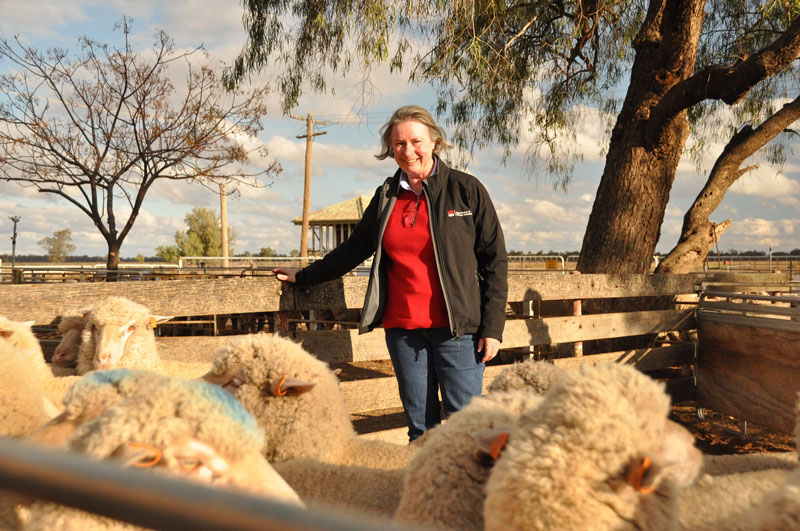
Research is helping Merino producers diversify their business to meet consumer demands, improve wool production and quality whilst delivering premium value lamb cuts.
The sheep industry is looking positive - in 2020 total sheep meat production increased with an estimated value of $1.4 billion and strong export demand reaching a record value of over $1 billion for the first time.
Following the improved seasonal conditions across key wool producing regions, producers are looking to rebuild from the 2018-19 drought and, wool production for the 2021/22 season is expected to increase by 6.9 per cent from last year.
NSW Department of Primary Industries (DPI) sheep genetics researcher Dr Sue Mortimer said the increased demand for sheep meat and changes in the relative prices paid for wool and meat are driving commercial Merino producers to consider running dual-purpose production systems in their breeding program.
"To help Merino producers get the 'right genes' for their breeding program, our research aims to improve the accuracy of selecting for meat yield and meat quality traits as well as the other traits important in a Merino dual-purpose production system such as wool," Dr Mortimer said.
"The research found traits are inherited. Through the right breeding program, there is the potential that producers can breed animals to better satisfy consumer preference for tasty fresh produce by improving traits such as intramuscular fat, retail colour stability, iron and zinc contents.
"Data was collected from more than 1,400 wethers sourced from the Merino Lifetime Productivity (MLP) project and submitted to MERINOSELECT, the national genetics database for Merino sheep.
"Genetic parameters were estimated for carcass yield, muscling and fatness traits, tenderness, fresh meat colour, retail colour stability, pH and mineral traits."
This information is now available to be combined with Merino data from other sources to enable more accurate estimation of genetic parameters for meat production and quality, including relationships with wool production, reproduction, growth and consumer-assessed eating quality traits.
By improving the accuracy of genetic parameters and increasing the number of Merino sheep with Australian Sheep Breeding Values (ASBVs) for lean meat yield and meat quality traits, ram breeders and sheep producers can have confidence that their breeding programs can be designed to improve meat and wool production and increased rates of genetic gain will be possible.
"This research will not only benefit Merino breeding programs it will contribute to lamb meat production in general. Merinos have a significant impact on the Australian lamb industry either as a direct source or through first cross systems."
The research is co-funded by Meat and Livestock Australia and NSW DPI and conducted at the Department's agricultural research sites at Trangie and Cowra in collaboration with the CSIRO at Armidale and Fletcher International Exports in Dubbo.
This research included data collected from the AWI and partners Merino Lifetime Productivity project at DPI's site at Trangie and CSIRO's site at Armidale.






